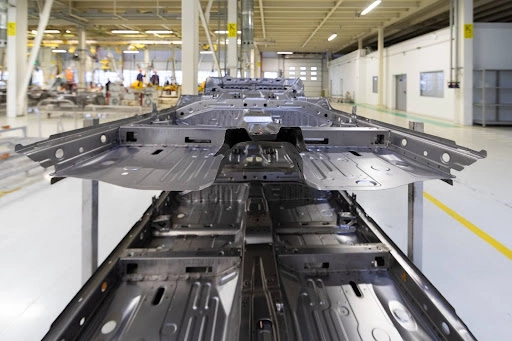Weighing machines have become a must-have for industries where precision and efficiency play important roles. The industrial weighing machine is a versatile device that comes in handy in handling large-scale weighing tasks across various sectors. The blog discusses its applications, benefits, and how to use it effectively.
What is an Industrial Weighing Machine?
An industrial weighing machine is specifically designed to measure weight in a manufacturing, logistics, agriculture facility, and many other areas. Designed to withstand heavy loads, these devices provide accurate readings, often under extremely challenging industrial environments. Different designs exist, such as a platform scale, bench scale, pallet scale, and crane scale, each suited for specific purposes of operation.
What’s an Industrial Weighing Machine Used For?
Industrial weighing machines are very important in various industries. Here are some of the most common applications:
1. Manufacturing and Production
These machines measure raw materials and semi-finished and finished goods to ensure consistency in production processes. Accurate weight measurements help reduce waste and maintain product quality.
2. Logistics and Warehousing
In logistics, weighing machines are used to calculate the weight of shipments. They ensure accurate billing and also transfer the consignment weight data to the computer for further calculations and records. They are also very important for warehouse inventory management.
3. Agriculture and Farming
Farmers use industrial scales to weigh produce, livestock, or bulk feed. This ensures precise packaging and pricing during sales and distribution.
4. Retail and Wholesale
Large retailers rely on weighing machines to handle bulk items like grains, pulses, and packaged goods, maintaining accuracy during transactions.
5. Mining and Construction
Heavy-duty industrial scales are used to weigh construction materials like cement, sand, and aggregates or minerals extracted in mining. This ensures adherence to safety and operational standards.
How To Use an Industrial Weighing Machine
Using an industrial weighing machine is straightforward, but following specific steps ensures optimal performance:
Step 1: Positioning
The weighing machine should be positioned on a flat, level surface so that there are no reading inaccuracies. For heavy-duty scales, proper installation according to the manufacturer’s instructions should be observed.
Step 2: Calibration
Ensure that the machine is calibrated before use.
Step 3: Load Positioning
Carefully place the weight on the platform. Make sure the entire weight is spread across it so that there is no skewness. Overloading the weighing machine beyond its capacity damages the machine and can create flaws in the readings.
Step 4: Measurement Reading
Wait for the weight to stabilise, then note down the measurement reading on the display. Some machines have more special features such as data storage and direct integration with apps / computers.
Step 5: Maintenance
Regularly clean the machine and check for signs of wear and tear. Ensure proper maintenance of the battery and the power supply.
Benefits of Industrial Weighing Machines
1. Accurate and Reliable
Industrial weighing machines provide accurate readings, minimizing errors leading to high-quality products during production and distribution processes.
2. Durable
Such machines are designed to withstand heavy loads and hard environments. They use solid materials that ensure performance in the long run.
3. Versatility
From small-sized to large-sized machines, these offer designs and functions that cater to varied industries.
4. Productivity
Digital display features, tare functions, and data storage and transfer enhance productivity through more efficient operation and saving of time.
5. Cost Benefit
Accuracy and prevention of waste through these machines lead to enormous cost savings in the long term.
Future Innovations in Industrial Weighing Machines
Industrial weighing machines are smartifying and becoming more efficient because of the advancements in technology. Internet of Things integration, wireless connectivity, and real-time data analysis can dramatically change the way industrial houses monitor and manage weight measurement. These innovations promise a level of precision, streamlined operation, and scalability for business entities.
Conclusion
The industrial weighing machine is highly responsible for the accurate and efficient handling of work across all sectors. Robust design, latest features, and versatility have made these weighing machines vital to businesses handling heavy loads and demanding accurate measurements. Being one of the trusted names in the electronic weighing industry, PHOENIX has a vast range of industrial weighing solutions tailored to diverse needs with maximum performance and reliability.



